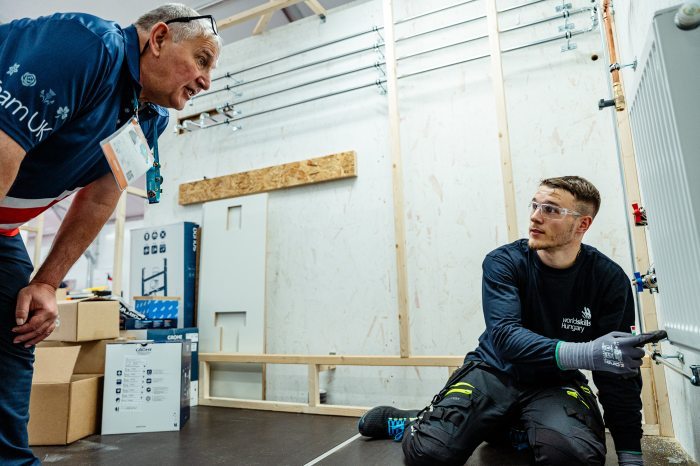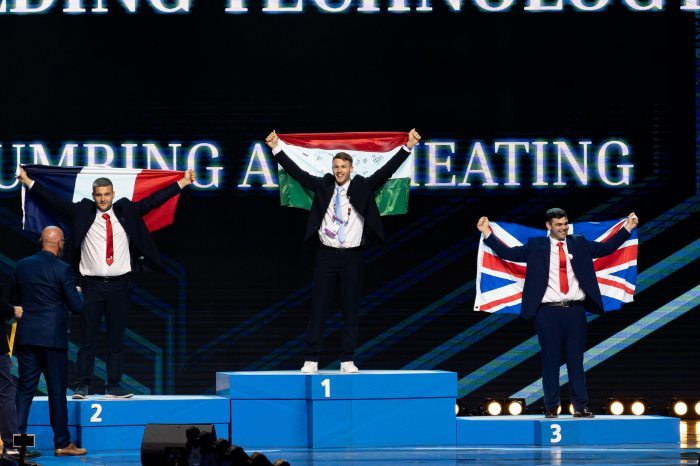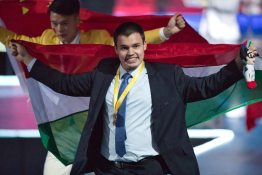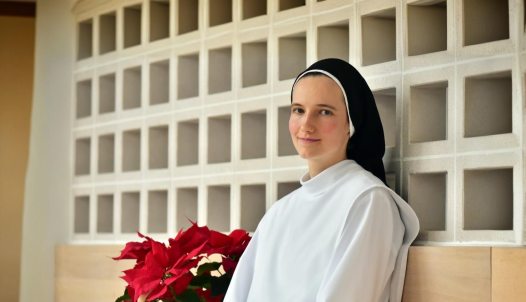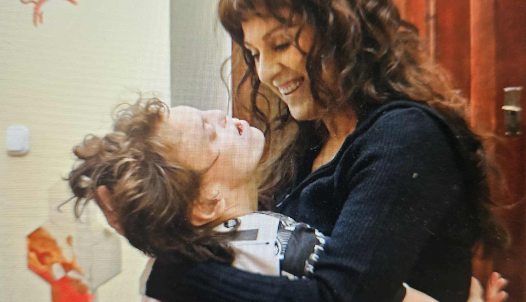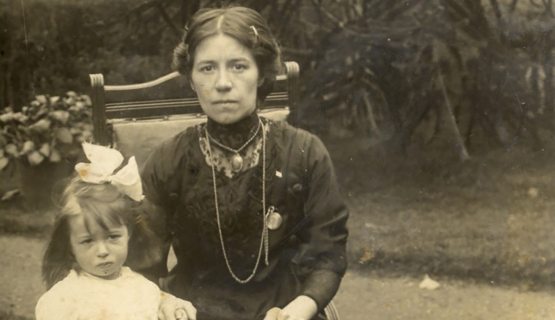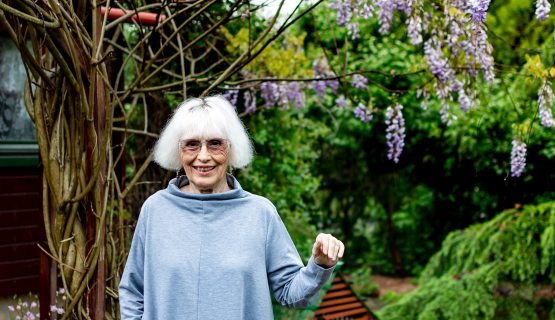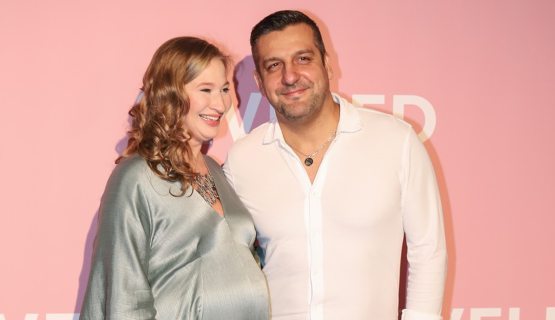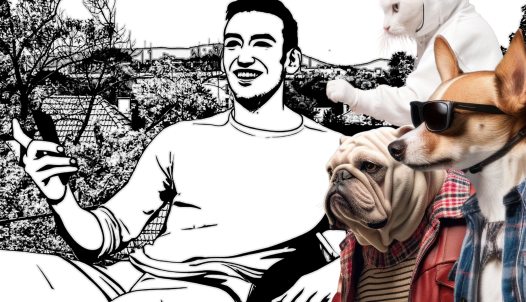"I could really be present mentally" – Márton Offner from Zalaegerszeg is Europe's best plumbing and heating technician
Only 21 years old, but he won the EuroSkills Competition this year. He almost resigned for the silver medal, but in the end, he was called up to the top step of the podium among the plumbers and heating engineers. His parents were there to cheer him on in Poland. Márton Offner, who grew up near Zalaegerszeg, is studying to become an energy engineer and says it's great to know that because of the competition, there are already building engineering companies that know his name.
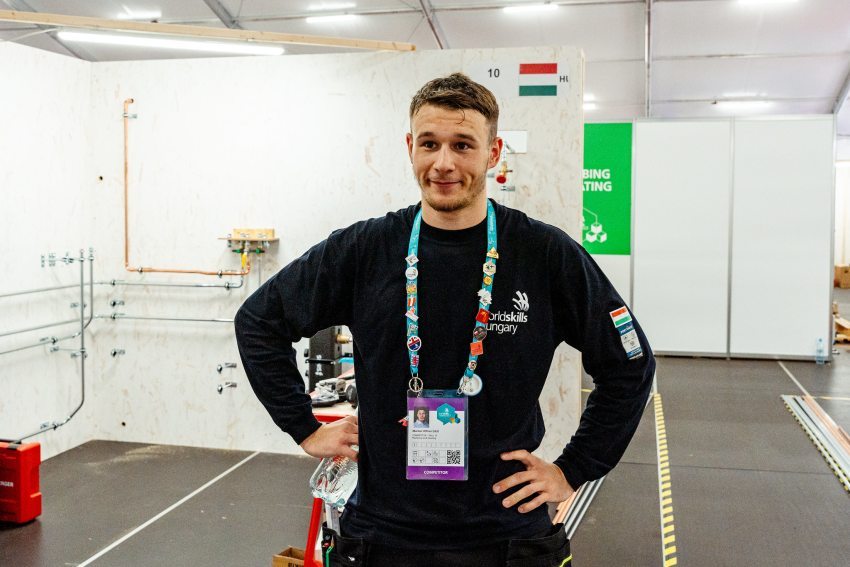
Childhood in Sárhida
The interview was scheduled for Monday morning in Budapest, but the face-to-face meeting ended up being an online video call. On Monday morning, Márton Offner had to visit the ER in Zalaegerszeg, the other end of the country, instead of writing his university test in the capital.
"I had a football match yesterday, I made a bad move, my foot cracked and I broke my metatarsal," he begins. "I've been playing football since I was six, I can’t stop, I’ve always been doing some sort of sport." He now plays football for his town’s team. The 21-year-old grew up in the village of Sárhida, near Zalaegerszeg, and it was only a few years ago that the Offner family moved to the Zala county seat.
"Growing up in a village, all my childhood, when I had free time, I would go out with my dad to do some fixing or I would do some DIY in the cellar by myself. Now as I'm at university, I help a friend renovate his flat, but now, unfortunately, with a broken leg, I won't be able to do not only sports but also this for a while," he laments.
Travelled to Gdansk as a silver medallist
He learned the trade of plumbing and heating after primary school. He says he wasn't sure he wanted to go to university, so he and his parents decided to go to a vocational school. This is how he chose the István Széchenyi Vocational High School in Zalaegerszeg, the school that gave him the foundations.
"I owe a lot to my teacher Imre Péter," he says. He was the one who drew his attention to the national selection competition. This year's EuroSkills was not Márton's first international competition: he started preparing for the 2022 World Skills Championships, at the end of May 2021, which meant he had to move to the capital. Last year, he won silver in Lahr, Germany, and from there, it was almost a steady path to EuroSkills 2023.
"I spent a year and a half preparing for the World Championships and two and a half for the European Championships," he says.
For the European Championships in Poland, he spent five days a week practicing at the Szily Kálmán Vocational School's workshop, where Csilla Szigetvári, a building services engineer, prepared him for the competition according to a strict schedule. In the competition, the plumbing, gas- and heating installations are divided into separate sections and everything is scored separately.
Clamping of pipes, piping, pressure testing
They worked eighteen hours, spread over three days. "We started with the gas module on the first day. Clamping, piping, pressure testing." He lists the steps of the gas pipes installation." He says that technically there is not much difference between gas, water, and heating installation. The competition itself required a high level of precision, accuracy, and speed. There were spectacular installation tasks to be done: building the piping outside the wall, with nice shapes and curves, so aesthetics were important. "In comparison, the so-called five-layer pipe is common in today's world, which is 99 percent behind the wall, so it doesn't matter so much how it looks."
"My big strength was that I could very much be present mentally. I was able to get up from the difficulties," he says.
But there was something else that surely gave him extra energy during the race. "It was huge to have my parents come out to Gdansk to cheer me on. They said it was an unforgettable memory for them too," he says. Besides, while last year he was the only Hungarian competitor at the World Championships, this year the whole Hungarian team was together. "It created a good atmosphere because everyone was able to talk to everyone."
Sixteen people were competing in Marci's profession, but he says it was clear from the start who the three or four strongest people were, and who might have a chance of getting on the podium.
To the top of the podium after difficulties
On the second day of the competition, he was faced with an unexpected difficulty that made him feel unsure. "I was going the fastest, so I was the first to encounter a problem: the radiator could not be placed where it was originally designed to be. It wasn't the right size. So I had to call in the experts (they do the scoring - ed.) who stopped my time and then they started discussing how to solve the problem.
Here I had 40 minutes of time off, so my rhythm was broken.
Fortunately, by the third day I was able to recover," he says.
He cites the announcement of the results as his favourite moment in Gdansk. "I got the bad news beforehand that they had downgraded my pump and radiator to 0 points. Not rightly. It made me a bit discouraged, I was unsure if I was going to get a podium at all," he recalls. All three medal-winning nations - France, Hungary, England in that order - were called to the stage, but it was not yet known who would finish in what order. "Here I was sure I was on the podium, I just didn't know what place. I was a little bit convinced that I would be a silver medallist again. But to win the gold medal was a great experience," he says.
"I would rather design"
Marci thinks that the professional knowledge he has acquired is useful in any case, but he decided not to stop there. He is currently studying energy engineering at the Budapest University of Technology. "I have no problem with construction, but I'm more interested in design, I'd rather design than do manual work out in the field," he explains. "This competition and my first place are not for the short run but for the long run. In the long run, such an achievement can look very good on a CV. In the short run, it means professional recognition and a certain amount of fame. For example, I have been told that a large building company already knows my name. That's not bad," he smiles.
"I met a lot of people during the preparation, and you also go through a personal development. However, it also meant a lot of sacrifices, mostly in terms of my relationships. In the last two years, I have spent very little time at home, in Zalaegerszeg, with my family and friends. But in hindsight I think it was worth it," he adds.
For interviews with other Hungarian medallists from the 2023 EuroSkills Championships, click here and here or here
